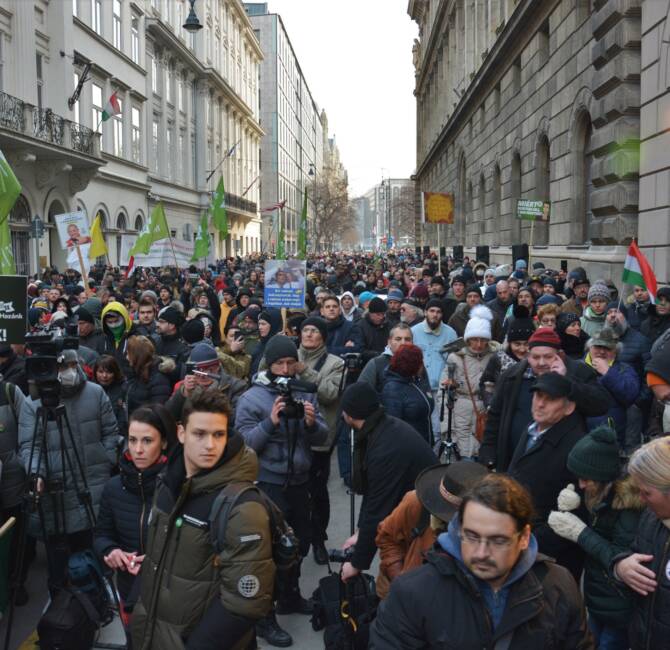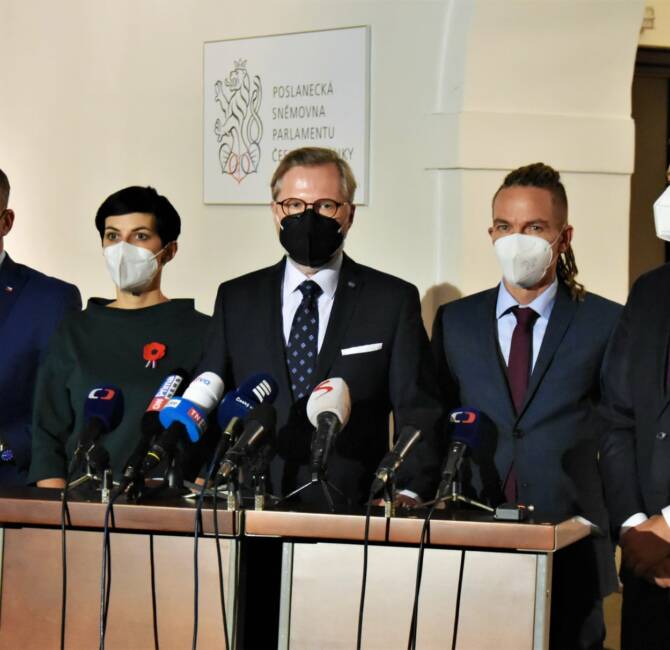Poland / Ukraine / Lithuania – A new Lublin Triangle summit (founded 28 July, 2020) took place on Monday, 20 December in Huta (Western Ukraine). It was attended by Polish President Andrzej Duda, Ukrainian President Volodymyr Zelensky, and their Lithuanian counterpart, Gitanas Nausėda.
Two crises currently threaten the region
This meeting was an opportunity to address the two most concerning crises in the region: the war with the pro-Russian separatist regions of eastern Ukraine – which has dragged on since 2014 – on the one hand, and the migration crisis orchestrated by Minsk on the Polish-Belarusian border, on the other hand, as the Polish president summed it up:
“There are two crises in our direct vicinity. The first is the border crisis caused by the Moscow-supported Belarusian regime.
This attack was repelled by our border guards and police officers, supported by the army. This is also a problem for Lithuania, as migrants have also been brutally pushed towards the Lithuanian border. […] In each case, it was an attempt to break the border in forbidden areas […]
The second problem concerns the intensification of Russian military presence near the Russia-Ukraine and Belarus-Poland borders. These actions concern us, but also our NATO allies.”
“Ukraine’s security is of fundamental importance.
A successful attack against Ukraine should not only be prevented, but above all everything should be done to prevent such an attack from happening.
(…) I am opposed to a policy of concessions to Russia. In my opinion, it is Russia that should withdraw from the actions it has undertaken in recent years. Today we stand in solidarity, we discuss difficult subjects, we talk about common history, but also about community of interests and security in our part of Europe”, he continued.
A step towards the integration of Ukraine into the European Union and NATO
An analysis that Ukrainian President Volodymyr Zelensky fully shares: “An important topic in our discussion was the migration crisis which is currently unfolding at the border between Belarus and the European Union.
We are of one mind when it comes to analysing this situation, we want to avoid similar scenarios in Ukraine, we are strengthening our border to prevent such situations
(…) Another element of this hybrid war is the escalation in the temporarily occupied territories [Donetsk and Lugansk, ed.] and on the border with Ukraine(…) In these difficult conditions, solidarity and assistance are very important, they count enormously, which is why we appreciate the support shown by Poland and Lithuania (…)
We are fighting Russian aggression; we have also discussed matters relating to our integration into the EU and NATO for the next year – in 2022. Our common task is to stop the Russian threat and protect Europe against Russia’s aggressive policy. Ukraine, Poland and Lithuania are at the forefront of this resistance,
and like no other country, we understand the urgent need to consolidate our common efforts, we understand how important it is now to speak with one voice.”
Russian nuclear weapons stationed in Belarus?
All three presidents also expressed concerns about the possibility that Russian nuclear weapons could be stationed in Belarus. President Duda drew a parallel with the upsurge in Russian military activities in the Kaliningrad district (former Eastern Prussia) at Poland’s north eastern border:
“If a situation were to arise in which part of Russia’s nuclear arsenal was shifted towards Western Europe and NATO, this would be yet another clear manifestation of aggression,
after all that we observe daily in the Kaliningrad region, for example, where Russian military potential continues to grow.”
On this subject, Russian Foreign Minister Sergei Lavrov said that “all options will be considered if NATO refuses to discuss security guarantees”.




